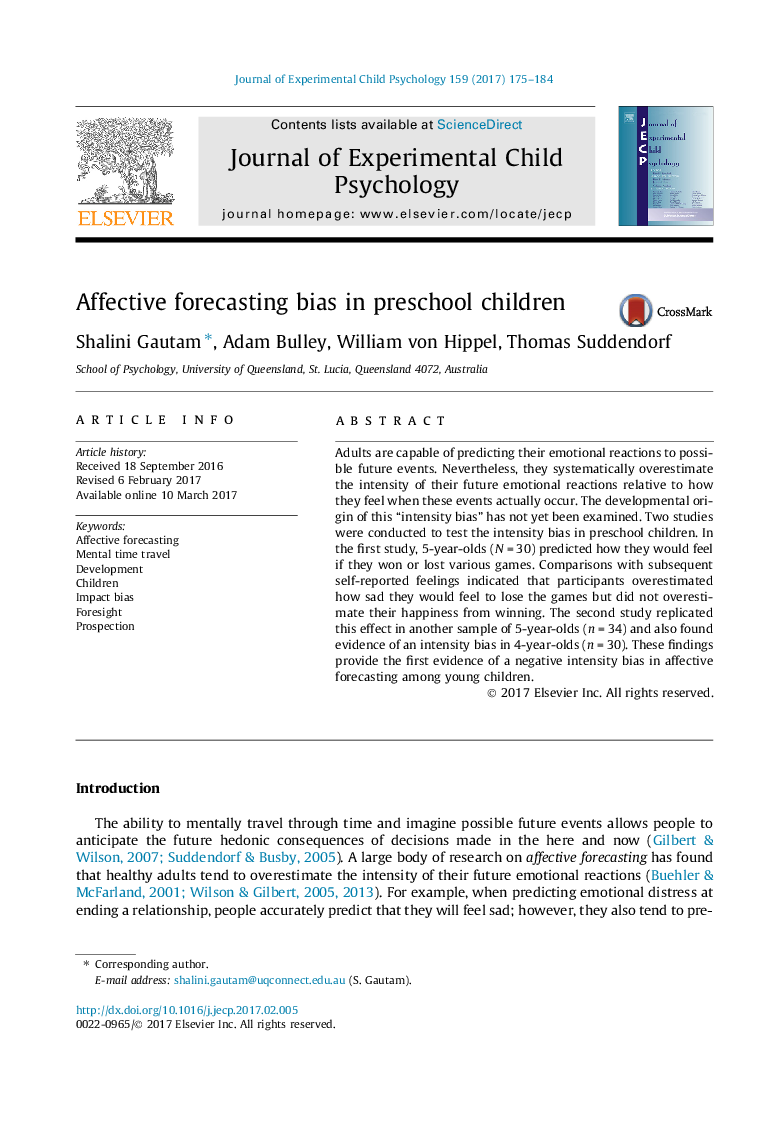| Article ID | Journal | Published Year | Pages | File Type |
|---|---|---|---|---|
| 5039987 | Journal of Experimental Child Psychology | 2017 | 10 Pages |
â¢Two studies examined affective forecasting in preschool children.â¢There was no evidence of an intensity bias for positive events in preschool children.â¢Evidence of an intensity bias for negative events was found in preschool children.
Adults are capable of predicting their emotional reactions to possible future events. Nevertheless, they systematically overestimate the intensity of their future emotional reactions relative to how they feel when these events actually occur. The developmental origin of this “intensity bias” has not yet been examined. Two studies were conducted to test the intensity bias in preschool children. In the first study, 5-year-olds (N = 30) predicted how they would feel if they won or lost various games. Comparisons with subsequent self-reported feelings indicated that participants overestimated how sad they would feel to lose the games but did not overestimate their happiness from winning. The second study replicated this effect in another sample of 5-year-olds (n = 34) and also found evidence of an intensity bias in 4-year-olds (n = 30). These findings provide the first evidence of a negative intensity bias in affective forecasting among young children.
